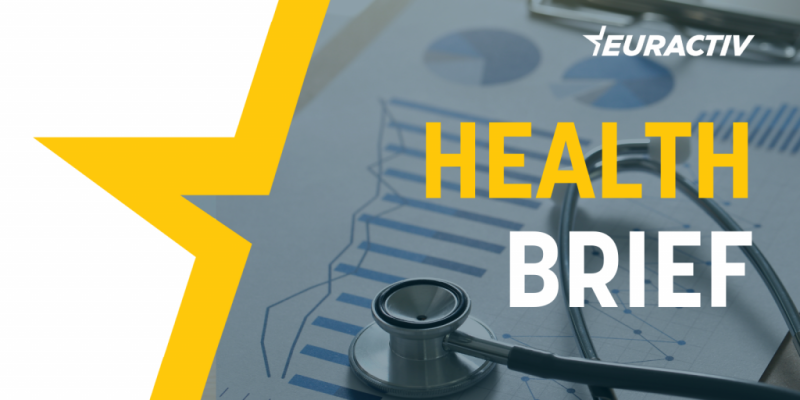Editorial word: A not-so-personal opinion on access to abortion in France
By Clara Bauer-Babef
The story got off to a rather good start almost a year ago. On March 8th 2023, International Women’s Day, French President Emmanuel Macron said he was in favour of enshrining the right to abortion in constitutional law, making France the first country in the EU – and in the world – to do so.
The news was welcomed by feminist associations and left-wing political parties and a draft bill will be discussed on Wednesday (24) January in the National Assembly.
There is a high chance that MPs will adopt the text, as the presidential majority and the left wing will vote in favour of it – and the right wing of the Palais Bourbon said they would not oppose it.
The draft bill will then need Sénat’s green light – here comes the problem. On Tuesday (23 January), the head of the French Sénat, Gérard Larcher, on franceinfo argued against the proposal.
“I don’t think that abortion is under threat in France,” he said, adding that “the Constitution is not a catalogue of social and societal rights”.
Though Larcher does not vote, his words can have a strong influence, especially as the Senate has a right-wing majority. “I’m giving you a very personal opinion,” he said.
To no surprise, Larcher’s “personal opinion” was echoed. Right-wing senator Muriel Jourda on Tuesday denounced the proposal as “a vast demagogic communication operation”.
“France is not the USA. There is a consensus on the importance of abortion. The real problem, in some areas, is the medical access that women are sometimes denied. I would have liked to debate this” she told Ouest-France newspaper.
Feminists’ associations reacted quickly. “Over 80% of French people are in favour of abortion in the constitution. Gérard Larcher is proof that we need to constitutionalise: we can have people in key positions in the Republic who deny women their freedom, in defiance of everyone,” said Anne-Cécile Mailfert, president of the Fondation des femmes on X (formerly Twitter).
The “personal opinion” is, as such a public concern. And in a world in which personal opinions can have that much sway – access to abortion is far from guaranteed.
EU News
-
- Europe has biggest share of women and adolescent smokers, WHO report shows
- EU Council approves new European Medicines Agency fee system
- Commission’s proposal to extend in vitro diagnostics implementation timeline
- European Parliament agrees on updated rules to phase out F-gases
- The Commission insists that it is transparent enough regarding meetings with tobacco lobbyists
- The EU health workforce is in dire need of action
- New EU-wide hygiene standards to improve drinking water
- WHO warns of 30-fold rise in measles in Europe
- MEPs discuss approaches to addressing the effects of climate change on health
- Europe has biggest share of women and adolescent smokers, WHO report shows. While tobacco use is declining globally, Europe is home to one of the highest percentages of tobacco use, particularly among women and youth, according to the World Health Organisation (WHO). A new WHO report on trends in the prevalence of tobacco use from 2000 to 2030 showed a about one in five adults worldwide consume tobacco compared to one in three in 2000. It also shows that the WHO Europe region has the highest tobacco use rates among women, which are more than double the global average and are reducing much slower than in all other regions. Giedrė Peseckytė wrote about this here.
- EU Council approves new European Medicines Agency fee system. The Council adopted on Tuesday (23 January) the new regulation to modernise and simplify the structure of fees paid to the European Medicines Agency (EMA). The new rules will ensure both adequate funding for the agency and sufficient support for national competent authorities to undertake their tasks. The current fee system which dates back to 1995 was already considered too complex and outdated by an evaluation in 2019. The agreement, which came later than expected as it was supposed to be endorsed by the Council in December during the Spanish presidency, will become applicable on 1 January 2025.
- Commission’s proposal to extend in vitro diagnostics implementation timeline. The European Commission released on Tuesday (23 January) a proposal to review the timelines for companies to comply with the In Vitro Diagnostic Medical Devices Regulation to ensure availability and avoid shortages. These devices are ruled by a regulation applicable since May 2022, however, a year and a half after the regulation entered into play, most companies are struggling to reach the deadline. This extension guarantees manufacturers approximately two additional years until the rules start to apply. With the new provisions and depending on the type of device, the end of the transition period will range from 2027 for high individual and public health risk devices to 2029 for lower-risk devices. Marta Iraola wrote about it here.
- European Parliament agrees on updated rules to phase out F-gases. EU lawmakers approved on Tuesday (16 January) the new rules to reduce emissions from fluorinated gases and other ozone-depleting substances, addressing the specificities of their medical applications. The deal sets requirements that ban products containing these gases in the EU market and marks specific phase-out dates for their use in sectors where it is feasible to find alternatives, such as air conditioning and heat pumps. However, finding more climate-friendly alternatives is not equally easy for all applications, mainly medical ones such as inhalation anaesthetics and metered dose inhalers (MDIs) used to treat asthma and chronic obstructive pulmonary disease. Marta Iraola has more on this here.
- The Commission insists that it is transparent enough regarding meetings with tobacco lobbyists. Following the European Ombudsman’s final findings of maladministration regarding the EU Commission’s meetings with tobacco lobbyists, the Commission insists there are sound transparency measures in place. “The Commission has been uncompromising in delivering the highest standards of transparency – on who we meet and who seeks to influence us,” a Commission spokesperson told Euractiv. EU Ombudsman Emily O’Reilly’s findings questioned the Commission’s commitment to the World Health Organisation (WHO) Framework Convention on Tobacco Control (FCTC) and its article 5(3) focused on making sure parties to the convention protect public health policies from “commercial and other vested interests of the tobacco industry in accordance with national law.” Amalie Holmgaard Mersh has more.
- The EU health workforce is in dire need of action. The Belgian presidency is set to begin work towards an EU health workforce strategy. Two stakeholders and a health policy analyst spoke to Euractiv about the dire situation faced by health workers, urging for urgent and concrete action. Every single EU country lacks health workers. On top of this, the health workforce is ageing, and educating, recruiting, retaining and re-skilling health workers is a challenge. The topic of health workers was also on the agenda of the previous Belgian EU presidency in 2010 when Council conclusions about “investing in Europe’s health workforce of tomorrow” were adopted. This time, however, the situation faced by health workers is many times more serious. Amalie Holmgaard Mersh has more.
- New EU-wide hygiene standards to improve drinking water. On Tuesday (23 January), the EU Commission adopted a new set of minimum hygiene standards for materials and products that come into contact with drinking water. They will apply from 31 December 2026. The new standards will cover materials and products used in new installations as well as in ones that are renovated or repaired. The goal is to “prevent microbial growth and reduce the risk of harmful substances leaching into drinking water,” the Commission wrote. They also argue that these standards will not just make drinking water safer, but also “reduce the administrative burden for companies that produce the relevant materials and products, as well as for national authorities.” Read more here.
- WHO warns of 30-fold rise in measles in Europe. The World Health Organisation’s European Region, consisting of 53 countries, saw a 30-fold increase in measles cases between January and October 2023, the WHO warned on Tuesday. In 40 of the region’s countries, more than 30,000 cases were reported, compared to 941 in 2022. The development is “concerning” said Hans Kluge, WHO Regional Director for Europe, in a statement. “Vaccination is the only way to protect children from this potentially dangerous disease. Urgent vaccination efforts are needed to halt transmission and prevent further spread. It is vital that all countries are prepared to rapidly detect and timely respond to measles outbreaks, which could endanger progress towards measles elimination,” Kluge added.
- MEPs discuss approaches to addressing the effects of climate change on health. On Tuesday MEPs in the European Parliament’s subcommittee on public health (SANT) were presented with the findings of the 2023 report of the Lancet Countdown on health and climate change. The report included 11 recommendations for a health-centred response to the climate crisis, which the authors argue are urgent, life-saving measures following years of insufficient action. Presenting the report was Marina Romanello, executive director of the Lancet Countdown, who emphasised the major impacts on human health from the warming climate, air pollution and carbon-intensive food systems. Until now health ministers have not been aware enough about their role on environmental topics, Romanello argued. Following the first full day dedicated to health at the COP28 in November, this is showing signs of change. However, she argued that there is still a very long way to go in connecting health and climate change. Watch the presentation here.
News from the Capitals
BRUSSELS
Concerned about the affordability of innovative drugs in the Netherlands, the Dutch Association of Innovative Medicines has called in an open letter for more support for innovative businesses with measures that attract skilled workers and protect the intellectual property they create. Read more.
///
Athens to unpause screening programmes, health ministry sources say. The implementation of the “Spyros Doxiadis” Action Plan of public health screening is expected to get back on track within the first semester of 2024, as Greece’s new health minister takes office. First up is the cervical cancer screening programme, due to start next month. Read more.
///
Slovak preterm babies ‘denied’ crucial neonatal skin-to-skin contact. Slovak hospitals are failing to fulfil the minimum recommended eight-hour-a-day skin-to-skin contact for preterm babies, which is considered critical for the survival and development of infants by the World Health Organisation. Read more.
///
Smog revisits Poland, sounding alarm for increasing health risks. On 10 January, three Polish cities – Poznań, Wrocław, and Kraków – ranked among the global top ten of the most polluted cities, according to the Air Quality Index, increasing health risks for their citizens. Read more.///
SOFIA
Changes needed in Pharma Package to avoid jolts in small markets like Bulgaria. The Bulgarian government should focus on ensuring timely and equitable access to innovative therapies for Bulgarian patients while preserving the financial sustainability of the national drug pricing and reimbursement system, the executive director of ARPharM told Euractiv. Read more.
///
PRAGUE
Czech health official: Longer patent protection will not boost pharma innovation. The Czech Ministry of Health says that providing longer regulatory protection, proposed by the pharma industry, will not solve the problem of the outflow of investment from Europe to the USA or boost innovative medicines, rejecting the industry’s arguments. Read more.
///
STOCKHOLM
Swedish stakeholders: New approval procedures for medicines risk weakening evidence standards. Medical stakeholders in Sweden fear that the European Commission’s proposal to introduce several fast-track procedures for approving new drugs risks weakening the evidence standards of the benefits and safety of a new drug. Read more.
///
DUBLIN
Tough medicine in 2024 for Ireland’s struggling healthcare system. Speculation is mounting that Ireland will head to the polls in the autumn, and healthcare is one of the leading issues, driven by medicines shortages, a staffing crisis, an ageing population, and a stalled modernisation agenda. Read more.
[Edited by Nathalie Weatherald]


